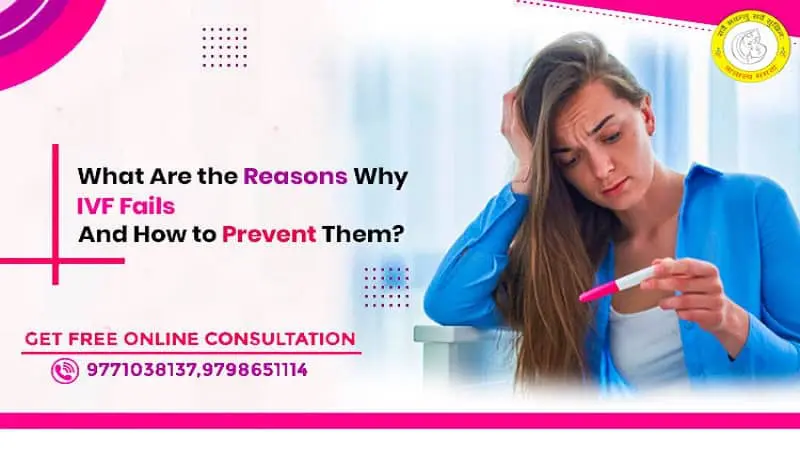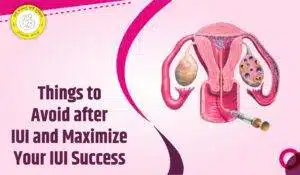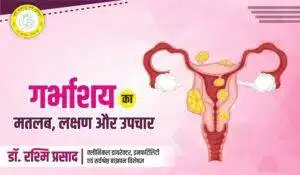Couples who had difficulty conceiving used In-vitro fertilization (IVF) and successfully gave birth to a child. Many consider IVF to be successful, but its effectiveness depends on variables beyond control. This may cause one to question why IVF doesn’t work.
Table of Contents
ToggleUnderstanding the IVF Process
Having a greater grasp of how IVF works can help you prepare for a successful cycle. Show the IVF method.
- Intravenous Hormone Treatment: Every month, on average, one egg is released from the ovary. IVF, on the other hand, necessitates the extraction of several eggs from the uterus. In order to release numerous eggs at once and then remove them, follicle-stimulating hormones are administered.
- Recovering Eggs: The best moment to extract eggs is when they have just been released from the follicles. It takes less than 30 minutes for the doctor to use an ultrasound to find the follicles in the ovary and a hollow needle to extract them.
- Fertilization is the Third Step: A donor or your partner’s sperm is used to fertilize the eggs as soon as they are removed from the uterus.
- As part of the observation Process: To ensure proper growth and development, monitor the embryos (fertilized eggs) during their journey. Observe the embryos until they reach the advanced blastocyst stage, usually five days.
- Transfer of Embryos: In a quick and painless process, the best embryos are selected and transported to your uterus for eventual implantation. The doctor inserts a catheter into the uterus and places the embryos; the operation takes just a few minutes.
Reasons for IVF Failures
IVF failure does not provide any light on the reasons why the process failed. Numerous variables influence the etiology of this condition.
- Transplantation of Embryos: A successful fertilization may fail if the embryo does not attach to the uterus and does not implant.
- An Embryo Devoid of Conducive Elements: In certain cases, physicians may not be able to discover a viable embryo during the IVF treatment. This necessitates the termination of the procedure.
- Fertilization of Eggs fails: It’s possible for the eggs to be fertilized even before an embryo is formed. This might be due to either one or both of them.
- Quality Eggs Are Hard to Come By: In order for an embryo to develop correctly, high-quality eggs are required. The odds of forming an embryo are little to none if they aren’t gathered in sufficient numbers.
IVF Failure Symptoms
Because of the lack of any alterations, the IVF implantation failure signs are clearly obvious. Increased sensitivity of breasts, vaginal discharge, and mild stomach cramps are common side effects of implantation. The absence of any of these after two weeks of IVF treatment may indicate that the procedure was unsuccessful.
When IVF fails, what happens?
If you have an IVF failure, you’ll want to speak with your IVF Specialist Doctor in Patna to figure out what went wrong and what your next steps should be.
- Session One: Counseling: The news of an unsuccessful IVF round may be upsetting on more than just a medical level for you and your spouse. As a consequence, this might lead to despair or fear about attempting it again. Counseling sessions might assist you in regaining some control over your emotions and a sense of well-being.
- It’s time to make some lifestyle changes: When you talk to your doctor, you’ll have a better sense of what could have led to an unsuccessful in Vitro fertilization process. Pregnant women may be advised to adjust their diet and exercise routines in order to maintain their weight in a healthy range, as well as to increase the production of hormones that promote pregnancy.
- Genetic testing should be carried out before implantation: If other methods of conceiving have failed, this may be an alternative. Genetic testing comes with a hefty price tag. In addition, it helps to identify any potential issues that can affect the embryo’s ability to implant, and repair or reduce them by selecting a suitable embryo.
Read the next article: Improve Your Fertility Levels
IVF Failure – How to Deal with It?
Understanding why IVF failed is an important part of coping with the situation. What’s more, you must deal with the occurrence itself and assist yourself in returning to normality in the best possible manner.
- Doing what you like is the best way to keep yourself motivated: Begin by jotting down all the activities you like doing. You and your pals may go on a mini-trip, eat delicious cuisine, and have a good time. Give yourself a break from the sorrow by having some fun.
- Engage in Conversations with People Who Share Your Interests: There are many ladies who had IVF failures. Your feelings and worries may be expressed and supported by a friend who knows what you’re going through by connecting with them online or in person. Voicing your emotions might help you feel more at ease.
- Carry out your own self-healing activities: The body experiences a major transformation during IVF, and now it must return to its normal condition. Since your menstrual cycle needs a few days to restart, your first period may be delayed. It’s a positive indicator that your body is working OK if you experience bleeding, so try to enjoy it. Relax your mind and body using acupressure or other alternative treatment approaches.
- Trust the Process: Certain medical issues may necessitate the termination of a pregnancy after a successful IVF cycle, resulting in a miscarriage or premature birth. Talk to your doctor to get a clearer picture of what went wrong and how to fix it. The following may assist you in coping with and embracing your own personal hardships.










